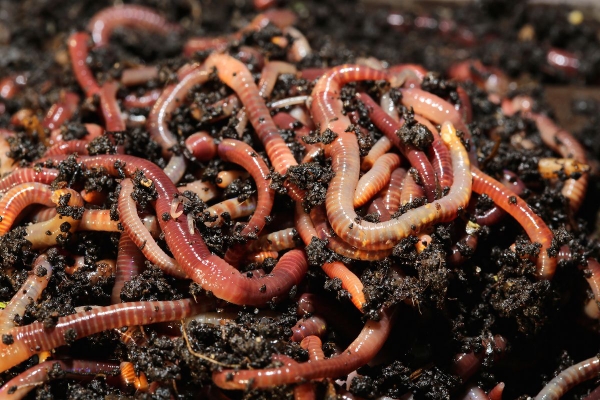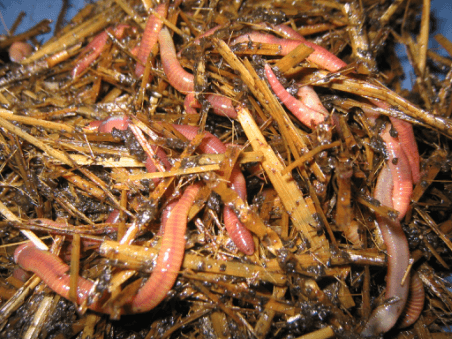
When worms are growing, they need an "all-you-can-eat" food supply. The more worms in a bed, the more food is required. If the worm castings aren't needed right away, they store very well and will keep until needed. She can take her worms out of the bedding, transfer them into fresh bedding and broadcast the castings onto her plants. The good news is these worm castings are an excellent source of fertilizer for gardens and flowers. An over concentration of worm castings is unhealthy for the worms and eventually kills them. If she hasn't changed out the bedding recently, her vermicomposting bin bedding has undoubtedly been converted almost entirely to worm castings.

The bedding is "too old" and/or compacted. The worms must be divided and the population reduced in the existing bed for her worms to grow.Ģ. Since she's not interested in have more than one vermicomposting bin or in going into the worm farming business, she should give them away. My advice to her was to split the bed into two. These egg capsules have hatched and her vermicomposting bin is most likely getting over-crowded. In Judith's case, her worms have been breeding and laying egg capsules all along. This is particularly true for young worms. In order for worms to reach maximum size, they need plenty of room. Below is a summary of these reasons with remedies. There are several reasons that worms stay small and don't grow into bait size. Even though she's not into worm farming as a business, the answer to her vermicomposting problem is same.

She's had these worms for over a year now. She not only uses the worms for vermicomposting kitchen waste, but she also uses the worms for fishing. Recently, one of our customers, Judith, emailed that her vermicomposting European Nightcrawlers weren't getting any bigger.

European Nightcrawlers - Red Worms - Worm Farm Manual


 0 kommentar(er)
0 kommentar(er)
